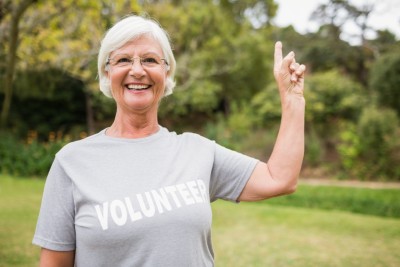 We’re all in this together… the tsunami is here and every one of us serving older adults in some capacity should be getting on the band wagon and FAST. Person and patient centered care must be focused on supporting and educating families. When family-centered care is embraced it becomes an approach to health care decision making that involves health care professionals and family members.
We’re all in this together… the tsunami is here and every one of us serving older adults in some capacity should be getting on the band wagon and FAST. Person and patient centered care must be focused on supporting and educating families. When family-centered care is embraced it becomes an approach to health care decision making that involves health care professionals and family members.
Dignity and respect are the core value of family-centered care. Listening to and honoring a patient’s and families values, perspectives and choices bridges communications between healthcare professionals and understanding the wishes of families. The delivery of quality care under a family-centered model means understanding and honoring the family’s beliefs, knowledge and cultural backgrounds.
The challenge of providing family-centered, patient-centered care in today’s health care system is complex, especially for older adults who are living with dementia or chronic illness. The time constraints to practice family-centered care when health professionals are stretched for time is a very real problem.
Understanding a family’s knowledge of a loved one’s physical and emotional needs are complex, especially if they do not live with them. At the same time, far too many older adults are entering hospital systems with no family members to advocate for their care. If their is cognitive impairment it becomes an even greater challenge to treat that patient.
Family-centered care must start with reaching out to families with education and awareness. Collaboration with private and public sectors, forming community partnerships, community organizations and faith communities – must be a priority as we face the aging tsunami.
The far majority of caregivers are family members, and that is going to increase drastically as more families cannot afford to pay for private care and staff shortages increase. New and innovative ways to reach families, educate them early and provide support avenues is absolutely essential to improving care for older adults.
Pam Brandon is President and Founder of AGE-u-cate® Training Institute. She is a passionate advocate for educating families and those that provide care for older adults.
For more information visit the Institute for Patient and Family Centered Care www.ipfcc.org
 Research has shown that volunteering leads to better health and that older volunteers are the most likely to receive physical and mental health benefits from their volunteer activities. Volunteering often leads to what is referred to as a “helper’s high”.
Research has shown that volunteering leads to better health and that older volunteers are the most likely to receive physical and mental health benefits from their volunteer activities. Volunteering often leads to what is referred to as a “helper’s high”. The rapid pace of our aging world is changing the face of every facet of our society from health and long term care, to faith communities and business establishments. Across the spectrum, issues such as these are at the forefront of leadership discussions:
The rapid pace of our aging world is changing the face of every facet of our society from health and long term care, to faith communities and business establishments. Across the spectrum, issues such as these are at the forefront of leadership discussions: